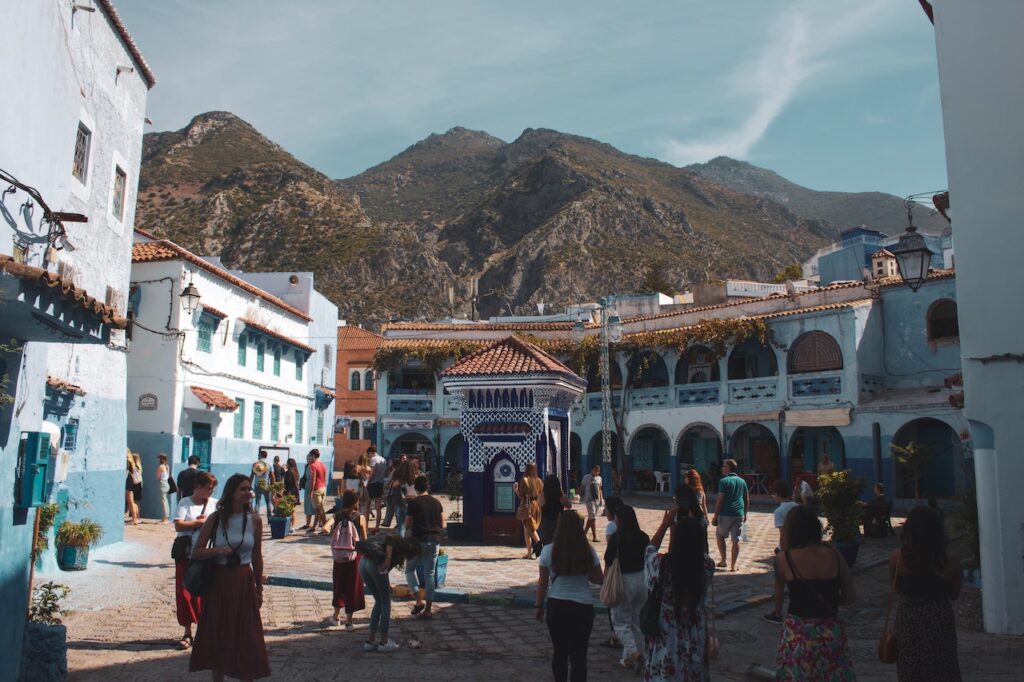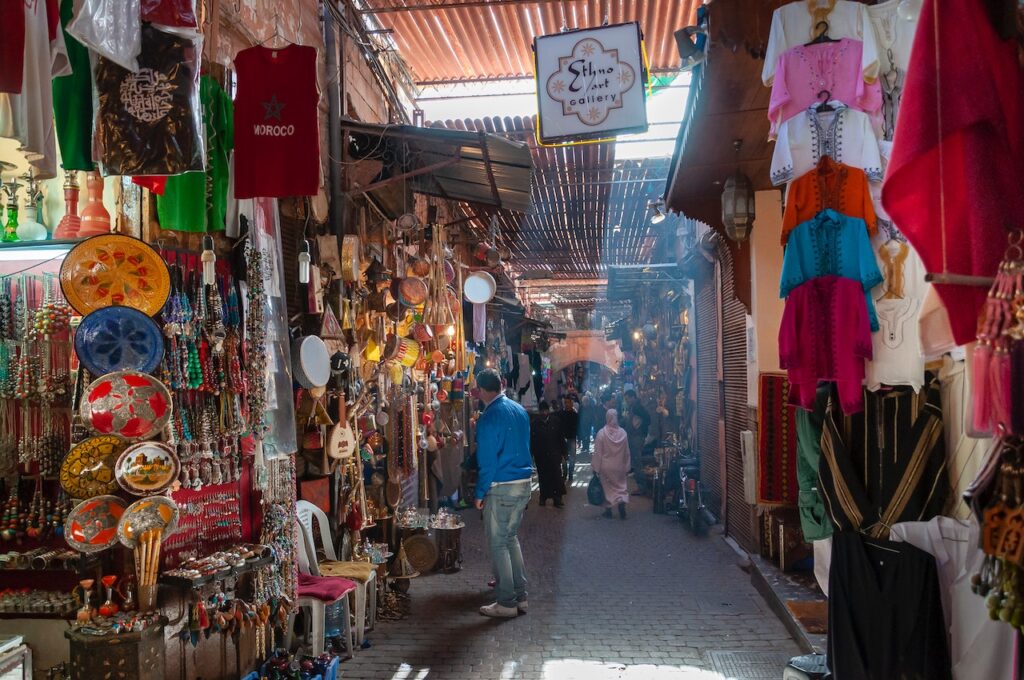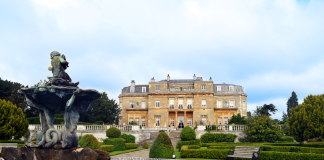In Morocco, you will find fashion inspiration around every corner – from the bustling isles of the souks in Marrakesh to the bold blue streets of Chefchaouen. But what does the Moroccan fashion landscape look like when it comes to sustainability?
For centuries the country’s economy has been built on informal trading and craftsmanship, but with the rise of fast fashion, local retailers and designers are struggling to keep up with the Joneses and taking shortcuts with unsustainable practices.
But thanks to a growing awareness of the environmental and social impact of the fast fashion industry, more and more Moroccan designers and artisans are embracing eco-friendly practices and ethical fashion principles.
Fill your shopping bags with sustainable fashion next time you visit Morocco. Here is a guide to the country’s sustainable fashion scene, featuring eco-friendly brands and what you need to know.

Sustainable fashion brands in Morocco
Morocco’s fashion industry has a long history of craftsmanship and traditional techniques, and sustainable fashion in Morocco often revolves around preserving these traditions while minimizing their environmental impact. Many Moroccan fashion brands are adopting sustainable practices, such as using natural and organic materials, employing fair trade principles, and supporting local artisans and communities.
Anouris Original is a brand by Moroccan designer Mohamed Youss. He recycles burlap sacks into high-end bomber jackets, cargo pants, and bags. This unexpected material gives a nod to his traditional upbringing and he draws inspiration from Moroccan carpets, coffee vendors, and vintage items in the markets.
Marrakshi Life is a Moroccan fashion label that uses natural and eco-friendly materials, including organic cotton and linen, to create stylish and sustainable clothing. Their designs are inspired by Moroccan heritage, and they work closely with local artisans to ensure fair wages and ethical production processes. Marrakshi Life’s collections include clothing for men and women like caftans and jumpsuits all crafted with a commitment to sustainability and ethical fashion. They have a zero-waste policy and each garment is made to order.
Another notable brand is Zyne, a luxury shoe brand that combines traditional Moroccan craftsmanship with sustainable materials. Zyne’s shoes are handmade by skilled artisans using locally sourced materials, including vegetable-tanned leather and upcycled fabrics. The brand also focuses on creating long-lasting and timeless designs that promote slow fashion, encouraging customers to invest in high-quality, sustainable footwear that lasts for years.
Sustainable markets in Morocco

In addition to individual brands, there are also eco-friendly marketplaces and concept stores in Morocco that promote sustainable fashion. One such example is Anou, a sustainable lifestyle concept store in Fez. The store features a curated selection of ethical and eco-friendly artisan creations, showcasing a range of accessories, jewelry, and home goods that are made with a focus on sustainability, fair trade, and social responsibility. You can even take a workshop and learn how to weave or use natural dies at their co-op.
Not all sustainable shopping in Morocco has to be high-end either. Essaouira’s biggest flea market is a bona fide treasure trove of vintage pieces and used clothing. Dig through mountains of perfectly wearable clothing that would otherwise have ended up in a landfill. You can even book this as an AirBnB experience where a local thrifting connoisseur will help you rummage through.
Things to remember when shopping in Morocco
When shopping for sustainable fashion in Morocco, it’s important to look for certifications and labels that indicate a brand’s commitment to sustainability and ethical practices. For example, the GOTS (Global Organic Textile Standard) certification ensures that textiles are made from organic fibers and produced in an environmentally and socially responsible manner. Fair Trade certification ensures that producers are paid fair wages and work in safe conditions. By supporting brands with these certifications, you can ensure that your purchases are contributing to positive change in the fashion industry.
Another important aspect of sustainable fashion is buying second-hand or vintage clothing. Morocco has a rich history of traditional clothing and textiles, and you can find unique and high-quality vintage pieces in local markets and souks. Buying second-hand not only reduces the demand for new clothing production but also gives new life to pre-loved items and helps to reduce textile waste.
In addition to shopping for sustainable fashion, it’s important to be mindful of your own fashion consumption habits. Embrace the principles of slow fashion, which promote buying fewer, higher-quality items that are made to last, rather than succumbing to fast fashion trends that promote disposable clothing. Take care of your clothing by washing them with eco-friendly detergents, repairing them when needed, and donating or recycling them when they are no longer wearable.
Lastly, stay away from the tannery in Fez. Is an iconic part of Moroccan heritage, but it is a toxic wasteland and the dyes used in the process are anything but sustainable. The carcinogenic products are dumped into the river and the working environment is hazardous to workers. Look for high-end and modern leather shops where you can have proof that the leather is non-toxic and ethically sourced.
What do you think of our guide to sustainable fashion in Morocco? Let us know in the comments below, we’d love to hear from you!

